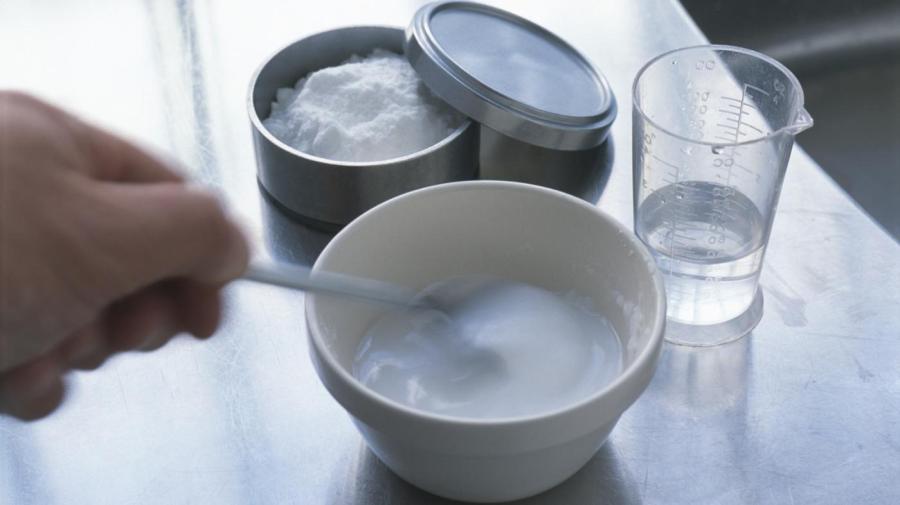Which Dissolves Better in Water, Salt or Baking Soda?

Table salt is more soluble in water than baking soda because of the difference in polarity, bond types and compound size. Salt, or sodium chloride, is bound by ionic bonds and is considered extremely polar. Water, or H2O, is also very polar. According to Kent Chemistry, “Like dissolves like.”
When sodium chloride, or NaCl, is dissolved in water, it is easily broken into individual Na+ and Cl- ions.
Baking soda, or sodium bicarbonate, consists of an Na+ ion bound to a larger bicarbonate ion. Although this compound is polar, it is less polar than sodium chloride. This means it is less soluble than NaCl. Also, although the Na+ ions easily disassociate in a polar solvent such as water, the bicarbonate ion never truly dissolves. Bicarbonate, or HCO3-, is an organic molecule composed of covalent bonds. Covalent compounds do not dissolve in polar solvents. The HCO3- ion takes a hydrogen atom from water to form carbonic acid, which then decomposes to form CO2 gas and water.





